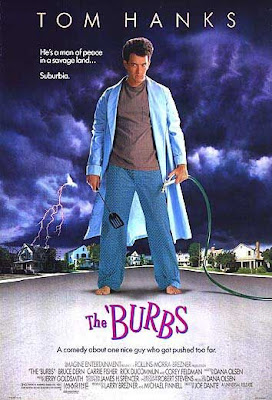Capt Worley PE
Run silent, run deep
http://finance.yahoo.com/news/The-Beginnin...625650.html?x=0In the years following World War II, the United States experienced an unprecedented consumption boom. Anything you could measure was growing. A Rhode Island-sized chunk of land was bulldozed to make new suburbs every single year for decades. America rounded into its present-day shape.
Along the way, there were three inexorable trends at the base of the societal pyramid. First, we plowed more energy into our homes each and every year. We cooled and heated our houses more (sometimes wastefully, sometimes not), brought in more and more appliances, added televisions and computers and phones. Per capita electricity shot up from about 4,000 kilowatt-hours per US resident to over 13,000 kilowatt-hours by the 2000s. Second, we needed more electricity because our houses got huge. The median home size shot up from about 1,500 square feet in the early 1970s to more than 2,200 square feet in the mid-200s. Third, we drove more and more miles every year to get around and between our sprawled-out cities. Back in 1960, Americans drove 0.72 trillion miles. By 2000, that number had reached 2.75 trillion miles. In 2007, vehicle miles traveled hit 3.02 trillion.
Now, though, the relentless growth in those figures is coming to an end. The AP's Jonathan Fahey reported last week that the utility company research consortium, the Electric Power Research Institute, projected that residential electricity demand would drop over the next ten years. "From 1980 to 2000, residential power demand grew by about 2.5 percent a year. From 2000 to 2010, the growth rate slowed to 2 percent," Fahey wrote. "Over the next 10 years, demand is expected to decline by about 0.5 percent a year, according to the Electric Power Research Institute, a nonprofit group funded by the utility industry." That's due, in part, to the decrease in the median size of new homes in recent years. The average size of a new home in 2010 is nearly 130 square feet smaller than in 2007.
Meanwhile, the number of miles that Americans drive fell in 2008 and 2009 -- even as gas prices fell off their highs. In 2010, Americans drove a little more, but so far in 2011, we're driving less. In other words, the growth in total vehicle miles traveled has stalled. And if you look at vehicle miles traveled per person, the picture is even more clear. On a per capita basis, people have been driving less for almost a decade. Now, with gas prices creeping back toward record high territory, we can expect the new downward trends to continue.
Taken together, the end of growth in residential electricity consumption and vehicle miles traveled form a momentous signal. The United States we all grew up with is changing, or rather, it's changed and the numbers are beginning to reflect that. The growth in housing size, electricity demand and miles traveled were the hallmarks of the suburban/exurban era. They were the statistics of sprawl -- but also of economic growth. Now that their relentless upward march has stopped, what happens? We need a new model for American prosperity that doesn't require ever greater injections of fossil energy. That's a generational challenge that hasn't been captured by the pro- or anti-green jobs rhetoric here in Washington.
I don't see this as the end of the suburbs. I think you'll see a continued trend towards subdivisions with smaller houses and people swtching to smaller, more fuel efficient cars. Despite what the new urbanists would have you believe , I don't beleive there is a big market for in-town units or live/work units, except for maybe retirees wishing to downsize and rid themselves of the yard.




